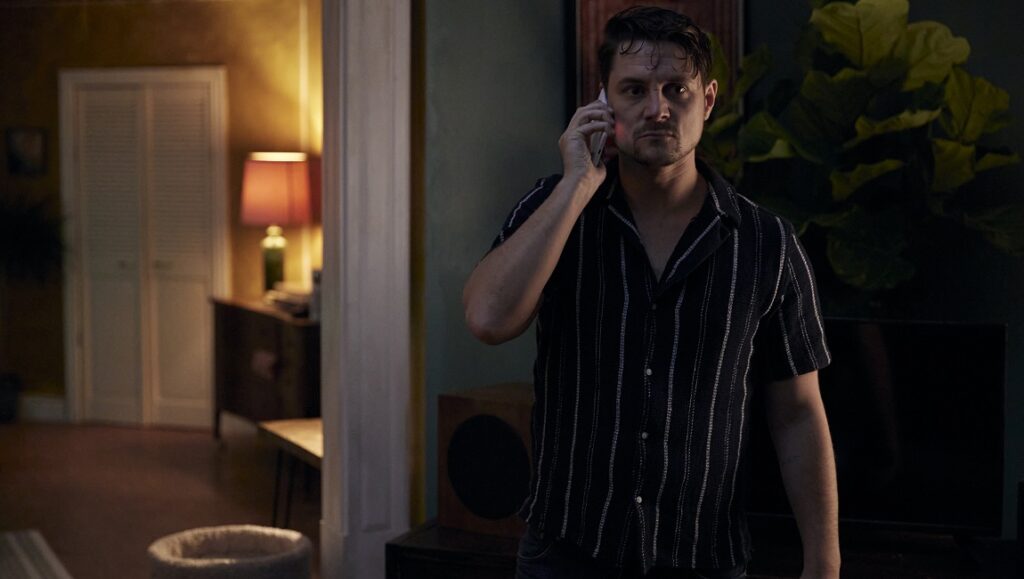With the website formerly known as Twitter in shambles thanks to an emotionally and psychologically unstable billionaire, it’s hard to remember a time when a simple thread could capture the attention of the Internet. In 2017, BuzzFeed artist Adam Ellis tweeted: “So, my apartment is currently being haunted by the ghost of a dead child and he’s trying to kill me. (thread)”. And so the saga of Dear David began. Throughout the following months, Ellis posted about the escalating ghostly encounters with a young boy missing half of his head. As the story went on, many accused Ellis of making up the events for attention, but to this day, Ellis insists that the haunting was real. Eventually, David apparently got bored with Ellis, because the encounters died off and Ellis stopped posting updates, which only fueled the accusations further. By the end of the story, Ellis had gained millions of followers and even earned a film deal out of the whole affair.
Now, it’s six years later and Dear David is finally seeing the light of day. The latest from BuzzFeed Studios, whose films include gems such as Snoop & Martha’s Very Tasty Halloween and My Fake Boyfriend, the movie attempts to recreate Ellis’ story. Augustus Prew plays Ellis, and as introduced he’s a struggling artist trying to come up with the next viral comic to please his boss, Bryce (Justin Long). Meanwhile, he’s repeatedly engaging with the online trolls who criticize his work; at one point he claps back by telling someone to “DIAF,” which apparently stands for “die in a fire.” David, a young boy who was roasted online for his amateur drawings, first shows up in Ellis’ dreams, but eventually he enters the physical world, causing rocking chairs to move and Ellis’ cats to act oddly. The hauntings escalate, and after Ellis fires off that initial Tweet, seemingly out of distress, his coworkers assume it’s just a cheap attempt at virality. The film proceeds predictably from here, and stays mostly in line with Ellis’ online saga; but unlike the way that the original events merely petered out, Dear David has to have a climax, which comes when David takes over Ellis’ body as though he were a video game character and tries to burn him alive.
Dear David is sure to draw immediate comparisons to 2021’s Zola, another film inspired by a Twitter thread. But Janicza Bravo’s film succeeded at translating the original story’s bizarre and quickly shifting events to the cinematic medium while retaining its gonzo spirit. Dear David, on the other hand, never quite captures the slow-burn intensity that energized Ellis’ original thread. Writer Mike Van Waes’ screenplay fails to realize the tension that was innate to the drawn-out nature of Ellis’ tale. Instead, Dear David is left to feel more like an also-ran ghost story than the saga of an Internet sensation. That’s partially due to the vast difference in presentation; Twitter’s 140-character limit at the time meant that Ellis had to tell his story in short spurts, anxiety built in to its performance, updates coming a single sentence at a time. In filmic form, director John McPhail doesn’t even attempt an approximation of this inherent construction of drama, and Dear David never communicates the sense of desperation that buttressed the original material.
But it’s not just a matter of narrative structuring that fails Ellis’ original Tweets. Visually, the film is a mess; David himself is rendered more like a low-budget doll that someone’s grandma made than a menacing specter, and the Tweets and text messages that flood the screen do more to distract than they do establish any effective visual grammar. The sound design is likewise a notable bug, so overt in its attempts to inspire fear that it ends up feeling more like playing the castle levels in Super Mario. It’s all unfortunate, as Ellis’s thread, whether it’s to be believed as authentic or simply an attempt to achieve Internet fame, was engaging. Dear David might be an attempt at a cautionary tale about the dangers of Internet trolling, but let’s be real — it should DIAF.
DIRECTOR: John McPhail; CAST: Augustus Prew, Justin Long, Andrea Bang; DISTRIBUTOR: BuzzFeed Studios, Lionsgate; IN THEATERS: October 13; RUNTIME: 1 hr 34 min.


Comments are closed.